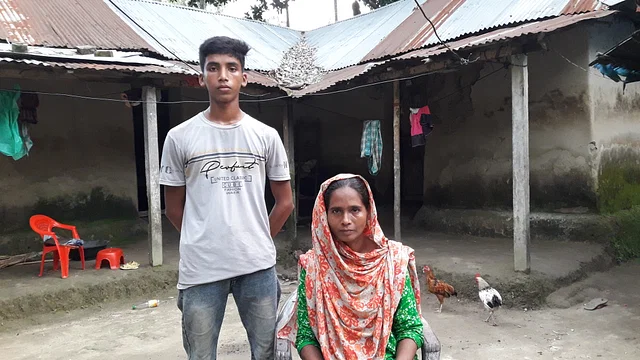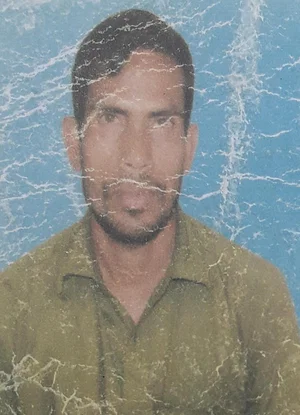“Everything is over for me. The person who used to send us money every week to get food is no longer here. Now we don’t even have a way to buy rice for a meal. I don’t know how we will manage,” said Majeda Begum (39) on Friday afternoon, standing in the courtyard of her house and wiping her tears with her saree. She is the wife of Abu Sayed (45), a shopkeeper who was shot dead during the conflict surrounding the quota reform movement in Dhaka.
Abu Sayed was from the New Bastu area of Marea Bamanhat Union in the Boda Upazila of Panchagarh. He ran a small grocery store in the Bachila area of Mohammadpur, Dhaka. When we visited Abu Sayed’s home in New Bastu on the previous afternoon, we saw an old, tin-roofed mud house. Relatives and neighbors said that Majeda has been devastated by grief over her husband’s loss for the past week.

Majeda Begum lamented, “On Thursday (July 18), I talked to him on the phone. He said he would send money via mobile payment to buy rice in the afternoon. But that day (July 19) he was shot dead. A bullet entered the right side of his head and exited from the left.” According to relatives, neighbors, and police sources, Abu Sayed’s ancestors had settled in New Bastu from Tangail several generations ago. Among seven brothers, Abu Sayed was the fifth. Besides the 14 decimals of land where his house is located, he had no other agricultural land. He had one son and one daughter; his daughter was married off about five years ago. His son had just taken the SSC exam. Abu Sayed had once been involved in vegetable business in the area, buying and sending vegetables to different districts across the country. After suffering losses in the business, he moved to Dhaka 10 years ago. Initially, he drove a rickshaw, but later started running a small grocery store in Mohammadpur’s Bachila area. He lived in a rented house and had another marriage about three years ago, from which he had an eight-month-old son.
Abu Sayed’s sister-in-law (his elder brother’s wife), Hamela Khatun, said they heard that on July 19, Sayed had opened his shop and was crossing the road to buy a plastic bag when a bullet struck his head from somewhere. He fell to the ground, and they later learned of his death through the landlord. Abu Ansar Mohammad Rezaul Karim, Chairman of Marea Bamanhat Union Parishad, told Prothom Alo over the phone that Sayed’s family struggled to make ends meet.
Abu Sayed’s nephew, Fazle Rabbi, said that on the morning of July 20, his uncle was buried in a graveyard close to their home. After suffering losses in his business, Abu Sayed had taken a loan of 45,000 Taka from the Agricultural Bank against the 14 decimals of his land. With interest and other charges, the loan had reportedly increased to 130,000 Taka. Fazle Rabbi expressed concern about how the family would repay the debt and manage their affairs now that his uncle is gone.










